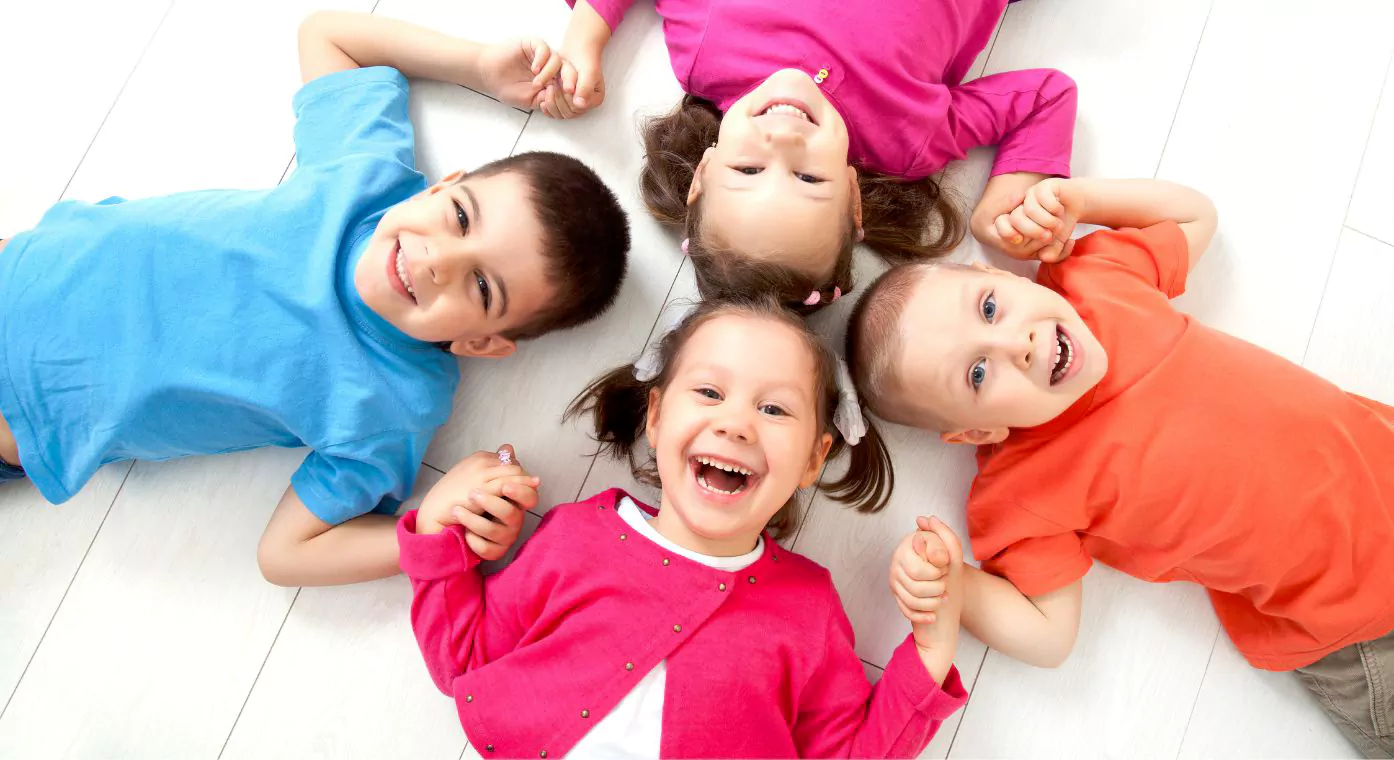Teaching Life Skills Through Preschool Games
The preschool period is a time of rapid growth along developmental measures, not the least of which is a child’s thinking abilities, and cognition. Ideas for preschool games are much more than just fun for children. They help a child bond with her parents and siblings, expend excess energy, help reduce anxiety and pave the way for acquiring social skills to face life.
Life skills are a set of basic skills, which are acquired through learning and play or acquired through direct life experiences that help young children to effectively handle issues. It is through play young children get to also learn about the world they live in, about themselves and about each other.
The positive effects of play on preschoolers are far-reaching. It impacts young children’s mental, and physical activities and lays the foundation for an emotional state that is most conducive to encouraging and fostering the learning brain.
All that your child needs for learning through play is the time, space and freedom to explore games and ideas that interest her the most. So no matter what it looks like when children play, they learn.
Games nurture respect, trust & love
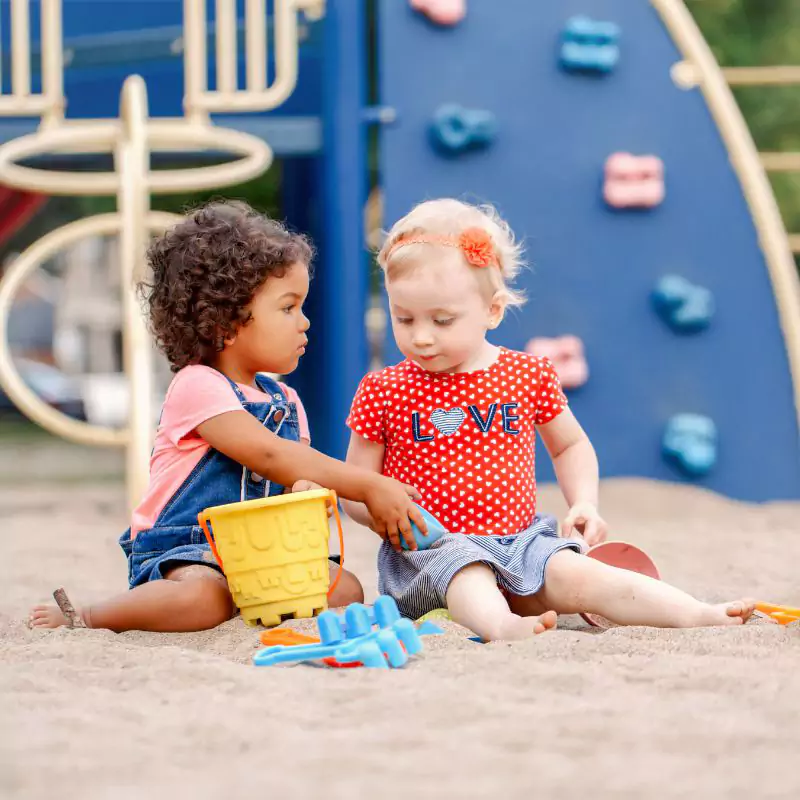
Children develop trust when their needs are met positively and consistently. Being sensitive and responsive to children strengthens this relationship and influences their development. To put it in a nutshell, Every child needs to be loved in order to thrive.
This is why it is important for new moms & dads to learn how their child communicates or signals what she needs and wants. Start by observing how your child communicates when she is hungry, tired or excited. Respond to these needs quickly and with care.
Remember, learning and responding to your child’s signals is like learning to dance with a new partner. Your baby leads with expressions, movements and sounds. You as a parent watches and respond. Together, a caring bond is created and matures into lifelong experiences of sharing, cherishing and learning.
Games build imagination & creativity
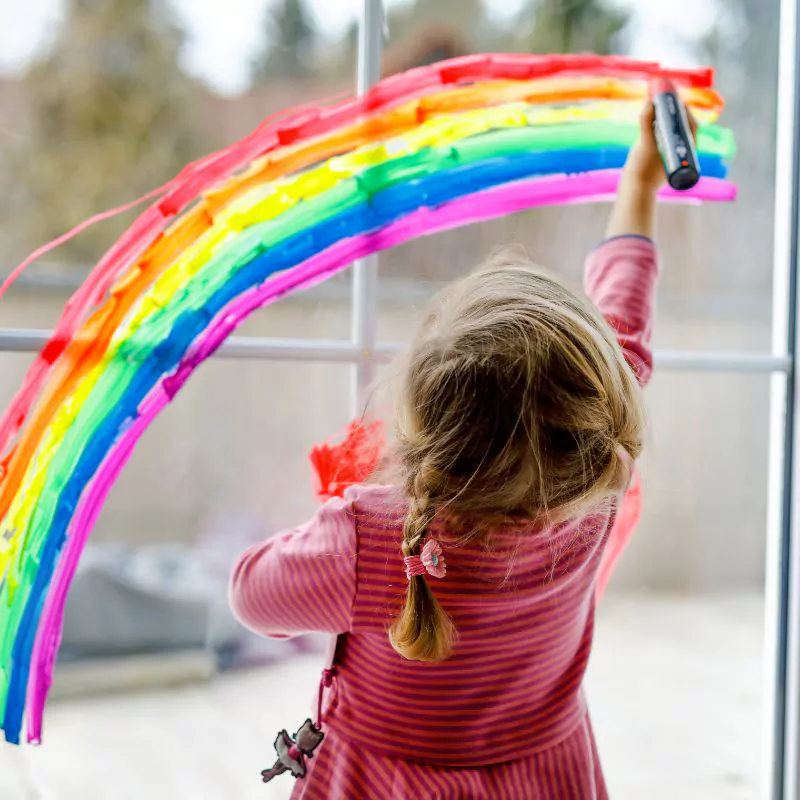
Free play in early childhood contributes to the development of children’s creative thinking and problem-solving skills which call for divergent thinking including flexibility, fluency, and originality. Learning through play provides children with opportunities to develop their creative thinking skills, such as allowing them to view situations from different perspectives, thinking of alternate strategies to resolve a problem, and practising thinking in different ways.
Through free play in early childhood, children exercise their brains and stretch their imaginations. By creating make-believe games or getting lost in pretend worlds, young children act out different solutions while boosting their confidence. They also make up their own rules and learn how to follow or adapt these rules as they see fit. These skills come in handy when navigating life and establishing relationships with peers and adults.
Symbolic play is the ability to imagine one object as another. For example, an empty cardboard box can become a car to drive around the room or become an astronaut’s helmet to wear and travel to the moon. Or if their friend loves eating pasta, they may believe that eating pasta will make someone Italian.
When your child engages in more complex pretend to play she is actually demonstrating higher intellectual development and is more likely to grow and become more socially competent. This form of play is an important part of healthy development. It helps children build skills they would be needing for future learning and problem-solving. It also improves creativity, which contributes to success throughout an individual’s life.
Albert Einstein once said, “Imagination is more important than knowledge.” Knowledge is limited to what we already know and understand, while imagination sets us free to embrace an entirely new dimension of learning and knowing without any bias or limits.
The key to developing this ability is through investment in time, the intensity of engagement, the extent of exploration, and discovery. These are also the means through which preschoolers progress in their thinking and reasoning skills.
Games foster cognitive growth
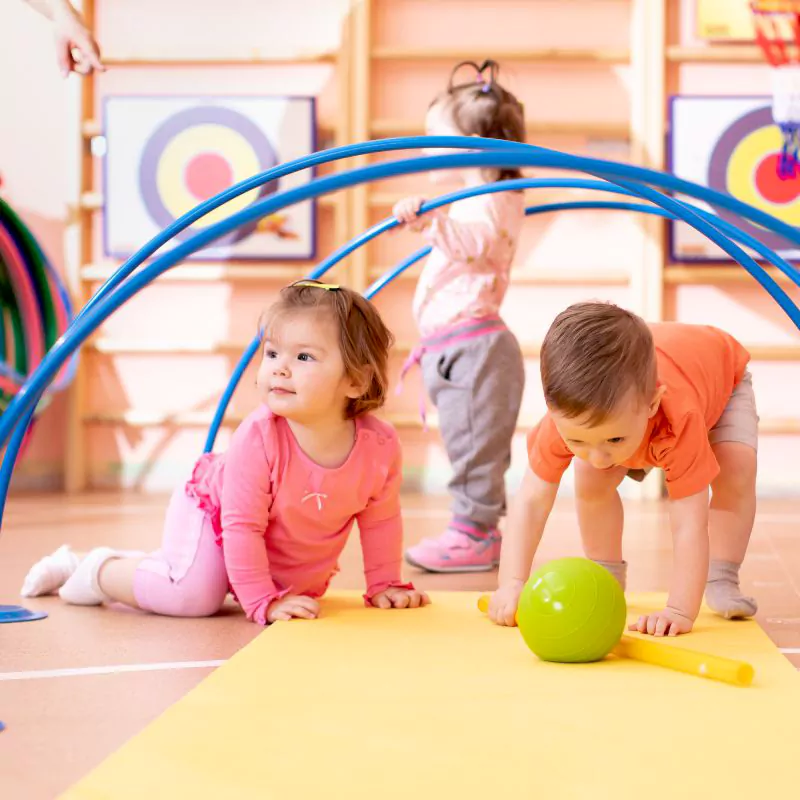
Free play in early childhood is also important for developing cognitive skills – that is, your child’s ability to think, understand, communicate, remember, imagine and work out what might happen next. Playing games is essential to fostering the growth of a healthy brain.
Children at this age are generally self-centred, they are unable to independently shift away from their own perspective. For example, children are more likely to say that grass grows so that they do not get hurt when they fall. An extension of this will be their belief that everyone shares the same viewpoint as them.
Unlike adults, a young child’s logic is guided by perceptions as opposed to reasoning. As a parent, you will notice how your child’s thoughts are dominated by fantasy. She will happily demonstrate her magical thinking capabilities, by imagining that if she wishes for something, her power of magic will make it happen.
This is an ideal time for you to introduce your child to unstructured and structured games to show some fun ways to develop your child’s sense of cognitive development and of course, understand the phenomenon of cause and effect. Both categories of play are important for instilling in a child a sense of curiosity and purposeful learning.
Unstructured play is the time when a child feels in charge and decides how she plays. In this form of play, your child is not bound by schedules or activities. Structured play, on the other hand, involves following rules or instructions to ensure a particular outcome.
Games ensure emotional & behavioural stability
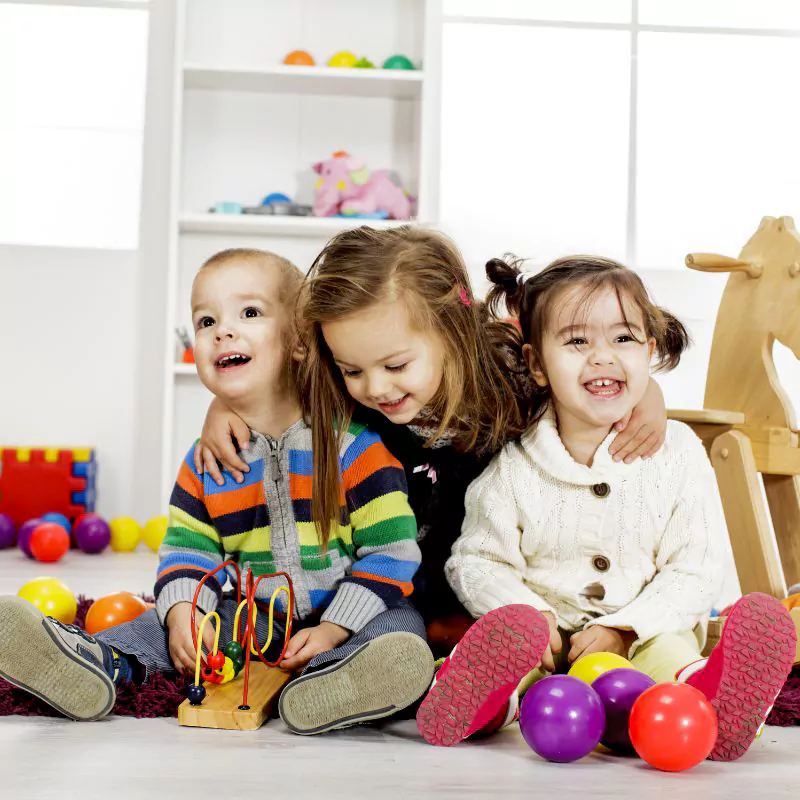
Just like when adults feel overwhelmed, they retreat into activities to calm and reduce anxiety, young children too feel the same way and need to do the same thing. Play is more than a distraction for them, it is an effective way to connect and keep children grounded.
Play is an excellent teacher. A daily routine of involving children in games is a must as it helps reduce stress and irritability. It also helps boost the sense of joy and increase self-esteem. Through games, children learn how to navigate the world in a way they can understand and process. Helps them work in groups, share, negotiate, resolve conflicts and be able to express themselves freely.
Parents who observe children at play get better at understanding these emotions. Listening and asking questions shows children that adults care. It also communicates that their feelings and experiences are important to grown-ups too.
Games improve literacy
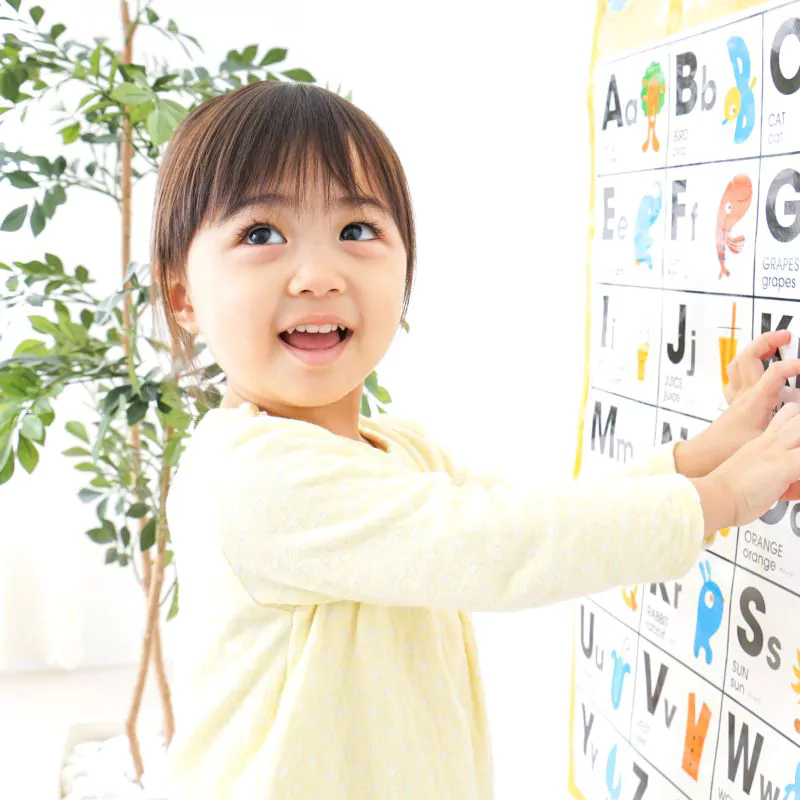
Children are born wired to learn a language. Starting from birth, they build language and literacy skills through play and interactions. Babies and toddlers pick up new words when parents describe what they see, hear and do. Stories, songs and rhymes help a child develops listening skills and learns about the sounds in words.
Through play, preschoolers learn about communication. They get to practise interactions even if they can’t speak! Stories teach how language works and how narratives are structured.
Games are also useful. Playing with small toys helps build the fine muscles in the hands and helps in writing. This helps with writing. Games such as “I Spy” develop abilities for observation and maintaining attention. These skills support comprehension by helping children understand and apply what they’re reading.
Research shows preschoolers tend to pay more attention after an unstructured play break. Play enhances curiosity and a curious mind is always on and is ready to learn.
Games encourage independence

Your child spends much of her day being told what to do, when to do it and where she has to go. In the world of play, however, she has the opportunity to set the rules and be the one with the power. She leads while adults listen and take directions.
Playing on her own is as important as learning how to play with others. It helps your child develop a stronger sense of independence. When she is comfortable with solitary play, your child will also feel more capable of tackling other tasks on her own and figuring out how she can fit in.
Playing games allows young children to experiment with creativity and their own ideas. Practical life skills for toddlers allows young children to find new and exciting ways to stimulate their mind. As Albert Einstein said, “the monotony and solitude of a quiet life stimulate the creative mind.”
Games promote physical fitness
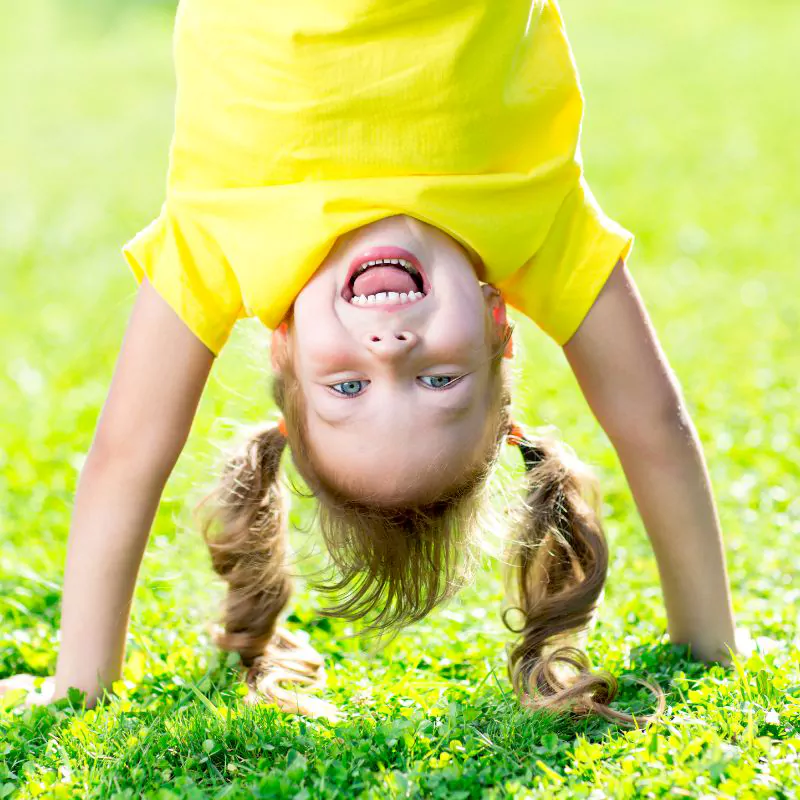
Children have a very strong desire and a need for physical activity, which is any type of play that gets them moving. It’s part of how they learn to use their bodies and strengthen connections in the brain. It’s also a great form of physical exercise, which promotes fitness.
Regular, active play throughout a child’s life has a positive and far-reaching impact. It sharpens reflexes, works on movement control, strengthens and improves gross & fine motor skills, helps develop a greater sense of balance and all the while, have fun!
No matter the level of a child’s abilities, interests and opportunities, learning and development through physical play will keep your child relaxed, healthy and happy.
Games that teach life skills
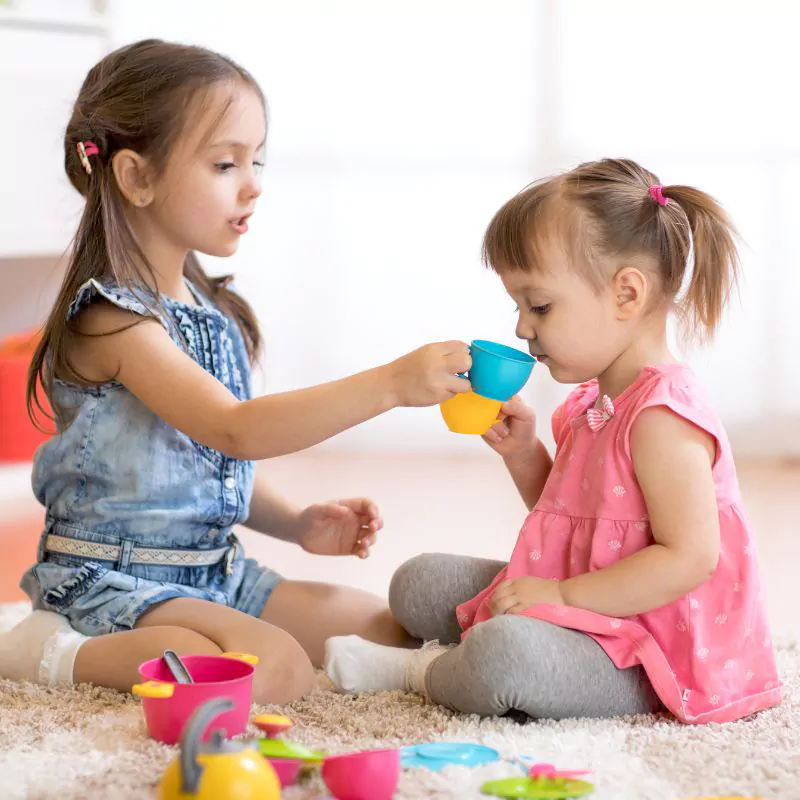
If you’re like most parents, you want to ensure that your child is in the best possible learning environment at all times. This is what games that teach life skills ensure and are more important than you think. So while your child might seem like she is just having fun playing, she is actually learning life skills that can help her in the future.
So whenever you have a weekend coming up or have some free time on hand, invite your neighbours’ toddlers over to your house and host a games party. There are many exciting games you can search for on the Internet and adapt to suit the age of your child. These can be great fun, as well as help you teach children some handy life skills.
Here are a few classic games to help get your party on to a great start. Don’t be surprised when such games activity turns into a routine. A happy time spent together and making new friends will be an add-on bonus!
Duck, Duck, Goose:
This is an excellent game for teaching strategy to young children. Participating children sit down on the floor in a circle. One child stands up and walks around, tapping each child’s head and saying “duck.” Then suddenly stopping behind one child, taps on his and says “goose,” and scoots around the circle with the goosed child chasing after him. Reaches the just vacated space before the “goose” can catch up with him.
The more children play this game, the easier it becomes to start thinking about how to spot a potential “goose” (such as spotting a child who isn’t paying attention), which will give them a better chance of getting back to their seats without getting tagged.
Duck, Duck, Goose teaches children to plan ahead and gives them immediate feedback on the quality of the decisions they make.
Simon Says:
This game helps children learn to pay attention and listen to instructions carefully — an important skill for acquiring leadership skills. In Simon Says one child asks their friends to do fun stuff by saying “Simon Says perform a cartwheel” or “Simon Says make a silly face”. This should result in other children following the instruction.
Children will find out very quickly that if they do not listen or pay attention they will not be able to keep up with the others in the group.
Musical Chairs:
This is another classic game which promotes patience, conflict resolution and dealing with loss. To play this game, children need to stand behind chairs set in a circle – there is always one less than the number of children playing. Proceed by switching on the music and the children walk around the chairs.
Each time the music stops playing the children must try and sit down on a chair. Whoever is left standing is out of the game and then another chair is removed. The game continues until there is only one chair left and 2 children standing. The winner is the last child who is able to sit down on a chair.
By playing this game, children will learn how to cope with the disappointment of being out of the game while also teaching them patience as the game continues. One of the biggest skills that a child will learn is conflict resolution as disputes will arise about whose chair is whose and who sat down on the chair first. They will also learn how to communicate and resolve these issues while playing the game.
Hide & Seek:
This is a fantastic game to teach problem-solving in the most efficient and simplest way possible. The aim of the game is to stay hidden for the longest period, while a chosen child looks for the children who are hiding. Children need to assess the options that are in front of them to find the best hiding spot in a very short space of time.
This helps children build up awareness of their surroundings which will allow them to make quick decisions. More experience is gained when children start to make more in-depth assessments which will aid them in making better decisions, such as not hiding in well-known spots but finding and hiding in the most unexpected of spaces.
Hopscotch:
Hopscotch is a popular pavement game that is excellent for developing critical thinking skills. Children draw a multi-square shape on the pavement with a piece of chalk and take turns in throwing a stone on the squares drawn on the ground.
The child must hop on the squares on the pavement avoiding the square where the stone has landed and return to the starting position. This game is a means to teach the child in planning and think ahead so that she can get through the whole course faster than others.
About My Gym
My Gym involves children in dynamic games, physical activity and movement that help in building neural networks in the brain. Making it easier for children to acquire intellectual skills, navigate complex social situations, and nurture emotional development.
To find out more about how My Gym plays a key role in supporting “whole-child development,” please visit any of our centres. Choose a day when you will be relatively free and come over with your child in tow. Your child could be an infant (as young as 6 months), a toddler or a preschooler, age is not a bar for enrolling.
My Gym has specially designed whole-child development programs that lay a firm foundation for personal, academic and future growth by involving your child in age-appropriate structured and unstructured physical activities and developing thinking and problem-solving skills.
Please note: My Gym classrooms are thoroughly sanitized every day — the tables, the chairs, the children’s activity stations and everything else the child might touch is made safe and clean. Please wear a mask, wash your hands frequently, and practice social distancing.
Frequently Asked Questions
How do you teach life skills in preschool?
Preschool is the ideal stage of early education to begin inculcating life skills in children. Children acquire fundamental skills such as initiation, cooperation, communication, and problem-solving skills through games, creative play, reading, and recitation.
Simple ways of teaching life skills during childhood:
1. Begin learning to dance with a sibling or a friend.
2. Building a sand castle on the beach & describing it in few words
3. Making a pencil holder out of a cardboard roll
4. Hop-scotch is a fun game that kids enjoy playing with their friends.
5. The “I Spy” game is another enriching exercise that helps children develop cognitive skills.
What are life skills activities for kids?
Some of the popular games based on preschool life skills include:
– Duck, duck, goose
– Simon says
– Musical chairs
– Hide & seek
– Hopscotch
These classic games excite children while also enriching them with a myraid of skills such as physical, social, emotional and cognitive skills.
Why is teaching life skills important in education?
Since “life skills” refer to the most fundamental capabilities that have a far-reaching impact on a child’s overall development, the following are the advantages of teaching life skills during preschool education:
– Improves relationships with parents, siblings, and friends.
– Directs energy and creativity into productive activities.
– Promotes courteous interactions and instils discipline.
– Lowers anxiety and elevates mood.
– Stimulates problem-solving skills.
How can playing games teach children about life?
Activities based on life skills for kids include:
1. Sports-based games or physical exercises help children develop a sense of balance and improve their fine motor skills.
2. Arts and crafts are directed towards stimulating critical thinking skills. When children create artwork, they are motivated to clean up the mess as well as arrange their belongings in order.
3. Swimming is a great exercise for strengthening gross motor skills, which also enhances discipline.
4. Literary activities focus on communication and interaction, which are the most basic life skills for preschoolers.
5. Salad dressing and cake decoration are simple activities that engage kids at home and teach them about planning and organising resources
What are the benefits of learning through games?
Benefits of learning through games based on life skills for preschoolers:
1. Children learn to respect and trust one another while playing with their peers.
2. Creative play fosters imagination and creativity.
3. Unstructured play stimulates cognitive development and problem solving skills.
4. Children who actively participate in sports or games have greater emotional stability.
5. Game-based learning allows children to freely express themselves, which improves communication.
6. Since children are naturally drawn to games, it boosts their self-esteem.
7. Children learn to follow directions better and become more independent.
8. Play-based activities promote physical and mental well-being in toddlers.



